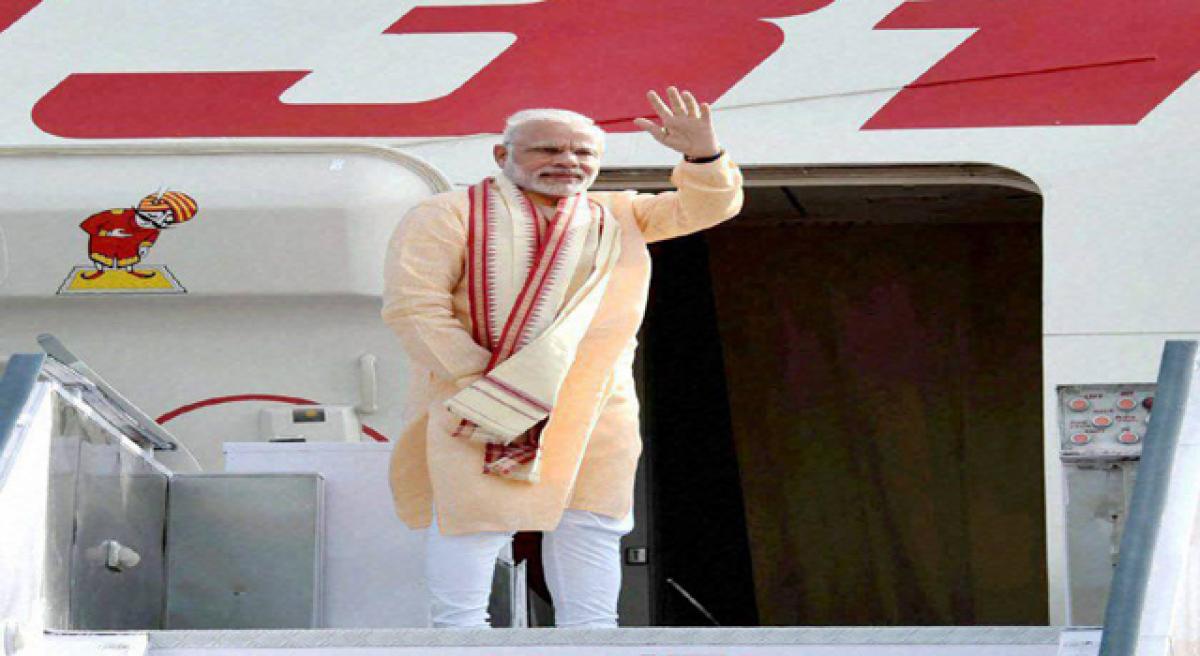Live
- Odisha BJP chief to be elected in January
- AP Home Minister Anitha alerts officials amid rains in heavy Rains in Tirupati
- Taluk Guarantee panel
- Uber Launches Uber Moto Women for Safer and Flexible Rides in Bengaluru
- ‘Fear’ pre-release event creates waves
- Champions Trophy 2025 Host Change? Indian Broadcaster's Promo Sparks Controversy
- Nabha Natesh introduced as Sundara Valli from ‘Swayambhu’
- Aamir Khan praises Upendra's ‘UI: The Movie’ ahead of its release
- Celebrations: Keerthy Suresh ties the knot with Antony Thattil
- Indian scientists develop flexible near-infrared devices for wearable sensors
Just In
Modi's Silicon Valley visit was not just hype, goals were clear


All prime ministerial visits are calibrated for a specific goal, be it economic, diplomatic, political or cultural. That is true of all Indian prime ministers but it is especially true of Narendra Modi. Once you get past his gushing, uncritical fan base, those goals become sharper.
All prime ministerial visits are calibrated for a specific goal, be it economic, diplomatic, political or cultural. That is true of all Indian prime ministers but it is especially true of Narendra Modi. Once you get past his gushing, uncritical fan base, those goals become sharper.
.jpg) A striking example of that is his visit to Silicon Valley in general and Tesla Energy headquarters and Facebook town hall meeting in particular. The prime minister's choice of South African-born Canadian-American technology entrepreneur Elon Musk's facility in Silicon Valley on Saturday was significant for its potential whose details are not well known to many.
A striking example of that is his visit to Silicon Valley in general and Tesla Energy headquarters and Facebook town hall meeting in particular. The prime minister's choice of South African-born Canadian-American technology entrepreneur Elon Musk's facility in Silicon Valley on Saturday was significant for its potential whose details are not well known to many.

© 2024 Hyderabad Media House Limited/The Hans India. All rights reserved. Powered by hocalwire.com






